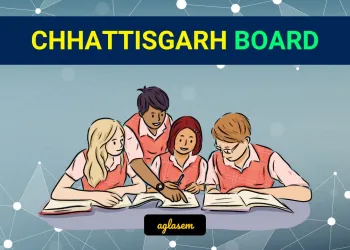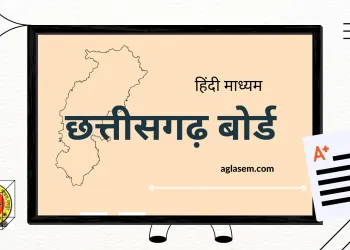Candidates can download NCERT Exemplar Class 6 Science Chapter 5 from this page. The exemplar has been provided by the National Council of Educational Research & Training (NCERT) and the candidates can check it from below for free of cost. It contains objective, very short answer type, short answer type, and long answer type questions. Along with it, the answer for each question has also been provided. From the NCERT Exemplar Class 6 Science Chapter 5, candidates can understand the level and type of questions that are asked in the exam.
NCERT Exemplar Class 6 Science Chapter 5 Separation of Substances
NCERT Class 6 Science Chapter 5 is for Separation of Substances. The type of questions that will be asked from NCERT Class 6 Science Chapter 5 are displayed in the below provided NCERT Exemplar Class 6 Science Chapter 5. With the help of it, candidates can prepare well for the examination.
Also Check: NCERT Solutions Class 6 Science
Multiple Choice Questions
- Paheli bought some vegetables such as french beans, lady’s finger, green chillies, brinjals and potatoes all mixed in a bag. Which of the following methods of separation would be most appropriate for her to separate them?
(a) Winnowing
(b) Sieving
(c) Threshing
(d) Hand picking - Boojho’s grandmother is suffering from diabetes. Her doctor advised her to take ‘Lassi’ with less fat content. Which of the following methods would be most appropriate for Boojho to prepare it?
(a) Filtration
(b) Decantation
(c) Churning
(d) Winnowing - Which of the following mixtures would you be able to separate using the method of filtration?
(a) Oil in water
(b) Cornflakes in milk
(c) Salt in water
(d) Sugar in milk - Which amongst the following methods would be most appropriate to separate grains from bundles of stalks?
(a) Hand picking
(b) Winnowing
(c) Sieving
(d) Threshing - Four mixtures are given below
(i) Kidney beans and chick peas
(ii) Pulses and rice
(iii) Rice flakes and corn
(iv) Potato wafers and biscuits
Which of these can be separated by the method of winnowing?
(a) (i) and (ii)
(b) (ii) and (iii)
(c) (i) and (iii)
(d) (iii) and (iv) - While preparing chapatis, Paheli found that the flour to be used was mixed with wheat grains. Which out of the following is the most suitable method to separate the grains from the flour?
(a) Threshing
(b) Sieving
(c) Winnowing
(d) Filtration - You might have observed the preparation of ghee from butter and cream at home. Which method(s) can be used to separate ghee from the residue?
(i) Evaporation
(ii) Decantation
(iii) Filtration
(iv) Churning
Which of the following combination is the correct answer?
(a) (i) and (ii)
(b) (ii) and (iii)
(c) (ii) and (iv)
(d) (iv) only - In an activity, a teacher dissolved a small amount of solid copper sulphate in a tumbler half filled with water. Which method would you use to get back solid copper sulphate from the solution?
(a) Decantation
(b) Evaporation
(c) Sedimentation
(d) Condensation - During summer, Boojho carries water in a transparent plastic bottle to his school. One day he left his bottle in the school. The bottle still had some water left in it. The following day, he observed some water droplets on the inner surface of the empty portion of the bottle. These droplets of water were formed due to
(a) boiling and condensation.
(b) evaporation and saturation.
(c) evaporation and condensation.
(d) condensation and saturation. - Paheli asked for a glass of water from Boojho. He gave her a glass of ice cold water. Paheli observed some water droplets on the outer surface of the glass and asked Boojho how these droplets of water were formed? Which of the following should be Boojho’s answer?
(a) Evaporation of water from the glass.
(b) Water that seeped out from the glass.
(c) Evaporation of atmospheric water vapour.
(d) Condensation of atmospheric water vapour.
Very Short Answer Type Questions
- Sheela, Saima and Ravi have to dissolve maximum amount of sugar in the same amount of milk so as to win in a game. Ravi took hot boiling milk while Saima took ice cold milk. Sheela managed to get milk at room temperature. Whom do you think would win the game and why?
- Fill in the blanks with appropriate words:
(i) Small pieces of stone can be removed from rice by __________.
(ii) ___________ are obtained from stalks by threshing.
(iii)Husk from wheat flour is generally removed by __________.
(iv) The process of settling of heavier particles is called __________.
(v) Filtration is helpful in separating an insoluble __________ from a __________. - State whether the following statements are true or false.
(a) A mixture of oil and water can be separated by filtration.
(b) Water can be separated from salt by evaporation.
(c) A mixture of wheat grains and wheat flour can be separated by sieving.
(d) A mixture of iron filings and rice flour can be separated by magnet.
(e) A mixture of wheat grains and rice flakes can be separated by winnowing.
(f) A mixture of tea leaves and milk can be separated by decantation.
Short Answer Type Questions
- Name and describe briefly a method which can be helpful in separating a mixture of husk from grains. What is the principle of this method?
- Match the mixtures in Column I with their method of separation in Column II.

Long Answer Type Questions
- Both Sarika and Mohan were asked to make salt solution. Sarika was given a teaspoonful of salt and half a glass of water, whereas Mohan was given twenty teaspoons full of salt and half a glass of water.
(a) How would they make salt solutions?
(b) Who would be able to prepare saturated solution? - Paheli was feeling thirsty but there was only a pot of water at home which was muddy and unfit for drinking. How do you think Paheli would have made this water fit for drinking if the following materials were available to her.
Alum, tub, muslin cloth, gas stove, thread, pan and lid. - Read the story titled “WISE FARMER” and tick the correct option to complete the story.
A farmer was sad/happy to see his healthy wheat crop ready for harvest. He harvested the crops and left it under the sun/rain to dry the stalks. To separate the seeds from the bundles of the stalk he handpicked/threshed them. After gathering the seed grains he wanted to separate the stones and husk from it. His wife winnowed/threshed them to separate the husk and later sieved/hand picked to remove stones from it. She ground the wheat grains and sieved/ filtered the flour. The wise farmer and his wife got a good price for the flour. Can you tell why? - You are provided with a mixture of salt, sand, oil and water. Write the steps involved for the separation of salt, sand and oil from the mixture by giving an activity along with the diagram.
- A mixture of iron nails, salt, oil and water is provided to you. Give stepwise methods to separate each component from this mixture?
Click here to download NCERT Exemplar Class 6 Science Chapter 5 Separation of Substances.
Answers







To get study material, exam alerts and news, join our Whatsapp Channel.


